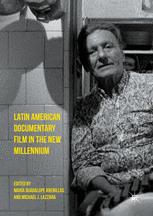

Most ebook files are in PDF format, so you can easily read them using various software such as Foxit Reader or directly on the Google Chrome browser.
Some ebook files are released by publishers in other formats such as .awz, .mobi, .epub, .fb2, etc. You may need to install specific software to read these formats on mobile/PC, such as Calibre.
Please read the tutorial at this link: https://ebookbell.com/faq
We offer FREE conversion to the popular formats you request; however, this may take some time. Therefore, right after payment, please email us, and we will try to provide the service as quickly as possible.
For some exceptional file formats or broken links (if any), please refrain from opening any disputes. Instead, email us first, and we will try to assist within a maximum of 6 hours.
EbookBell Team

0.0
0 reviewsNearly two decades into the new millennium, Latin American documentary film is experiencing renewed vibrancy and visibility on the global stage. While elements of the combative, politicized cinema of the 1960s and 1970s remain, the region’s production has become increasingly subjective, reflexive, and experimental, though perhaps no less political. At the same time, Latin American filmmakers both respond to and shape global tendencies in the genre. This book highlights the richness and heterogeneity of Latin American documentary film, surveys a broad range of national contexts, styles, and practices, and expands current debates on the genre. Thematic sections address the “subjective turn” of the 1990s and 2000s and the move beyond it; the ethics of the encounter between the filmmaker and the subject/object of his or her gaze; and the performance of truth and memory, a particularly urgent topic as Latin American countries have transitioned from dictatorship to democracy.